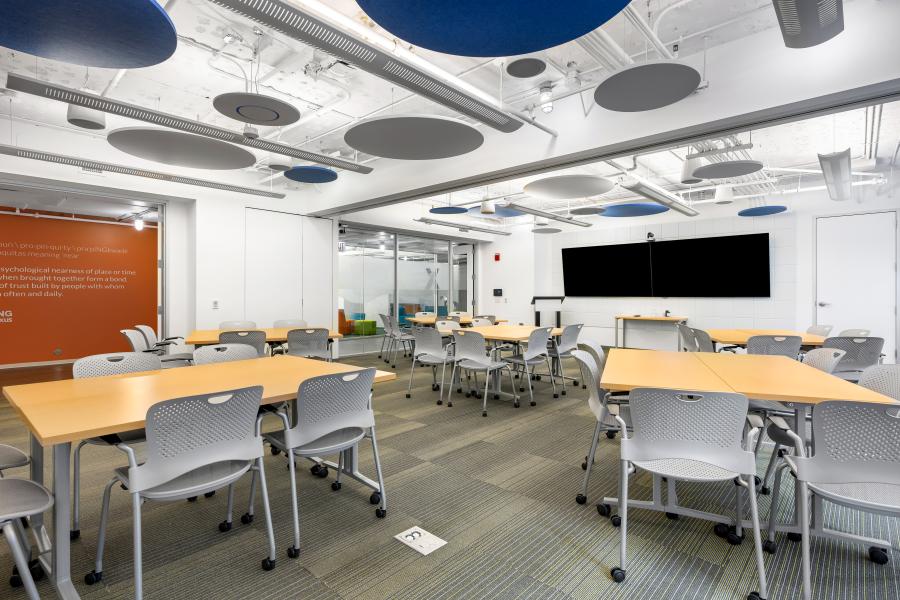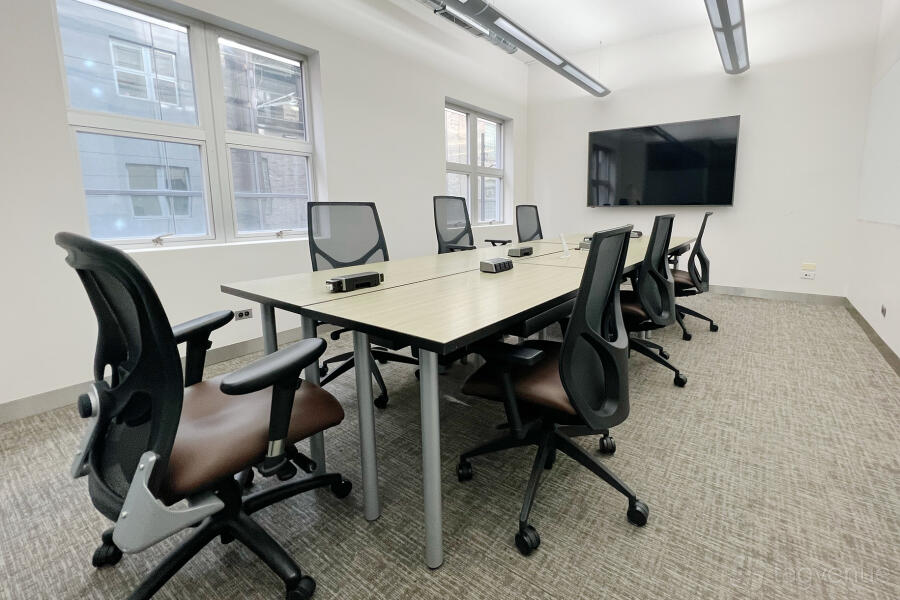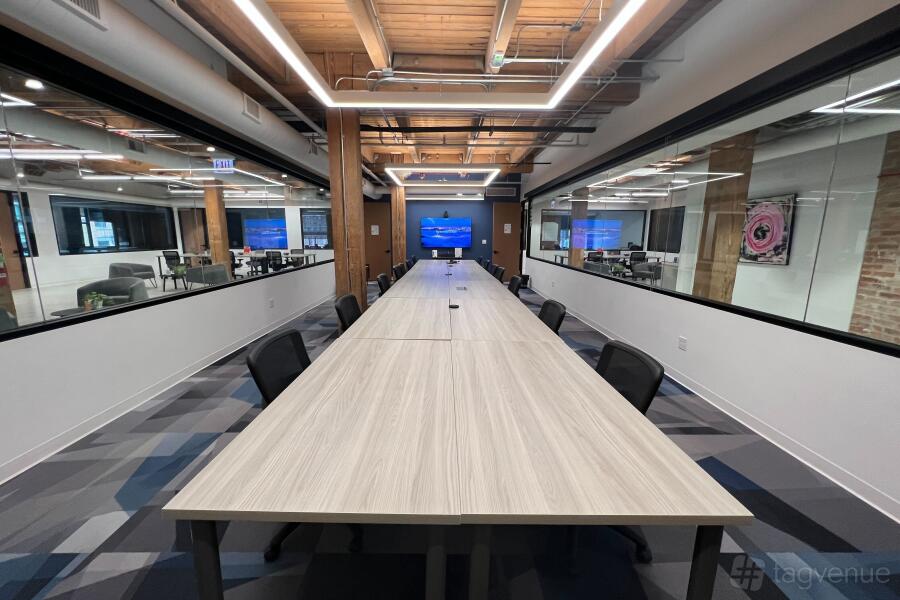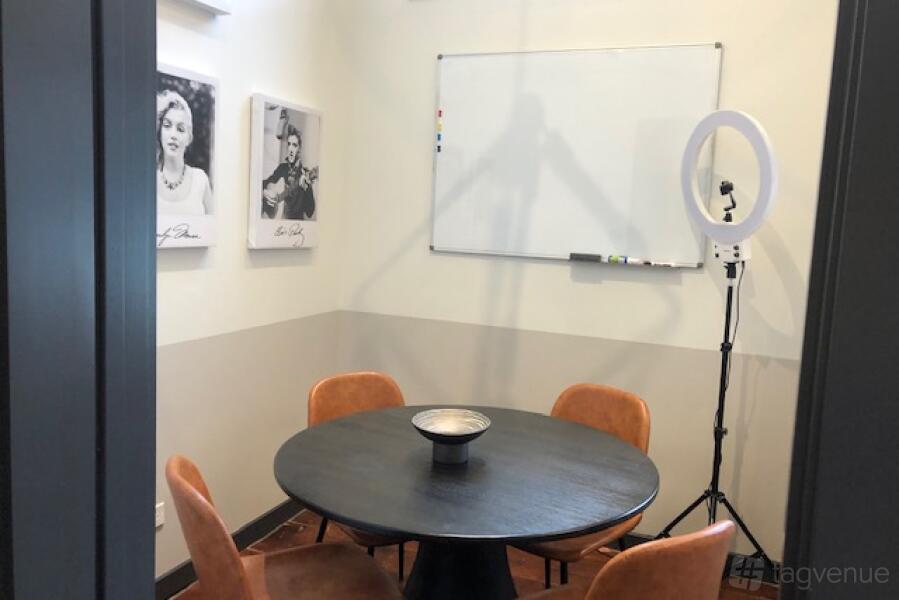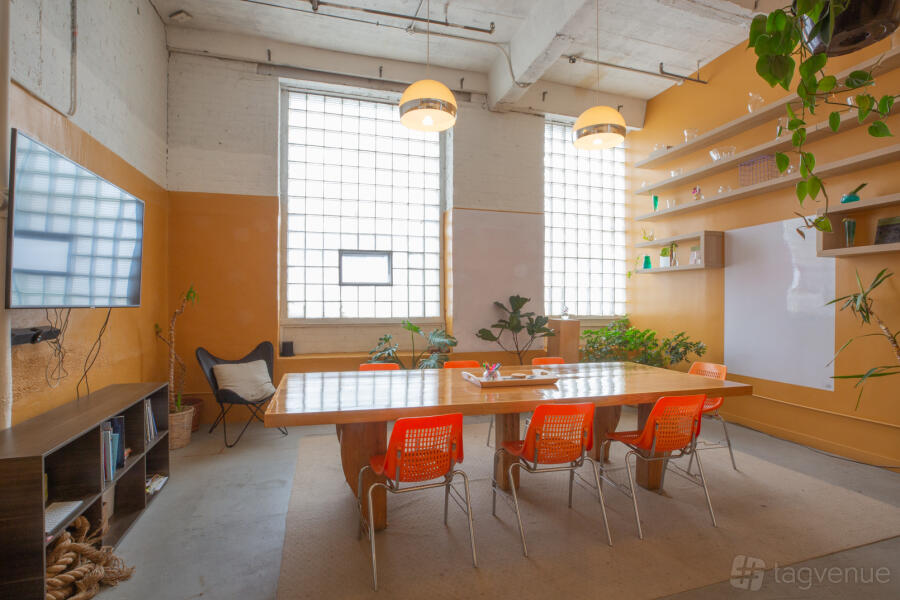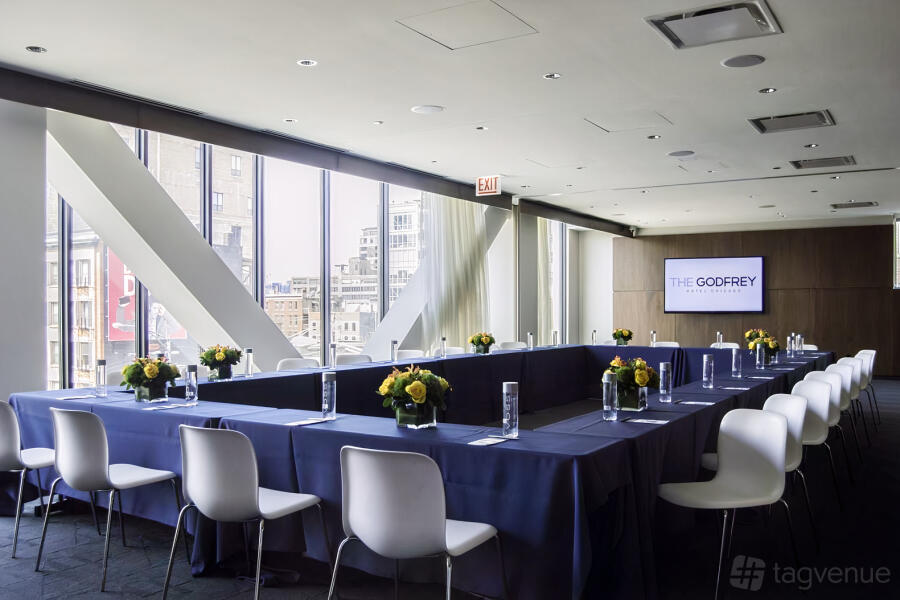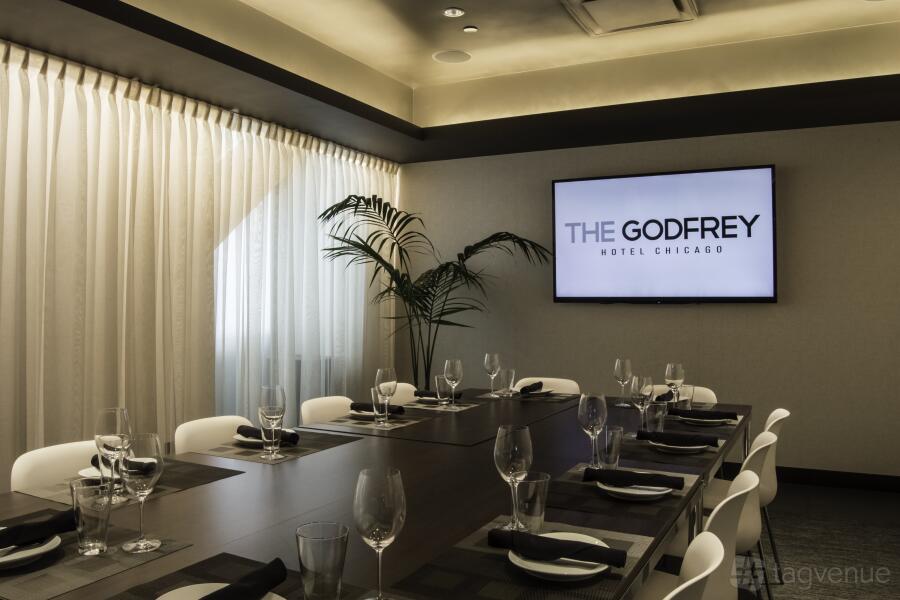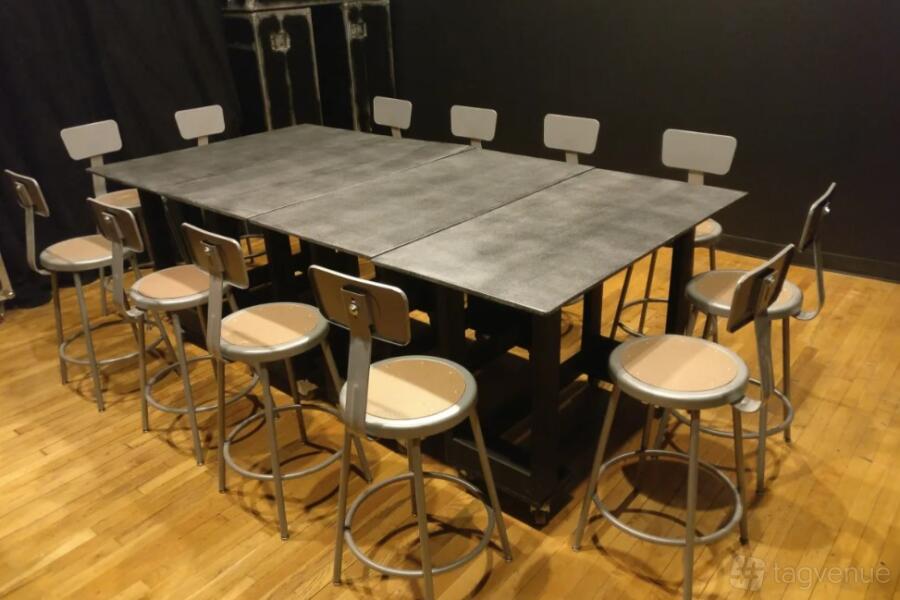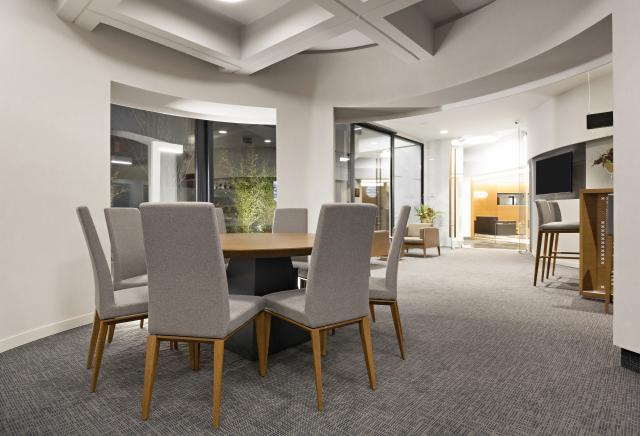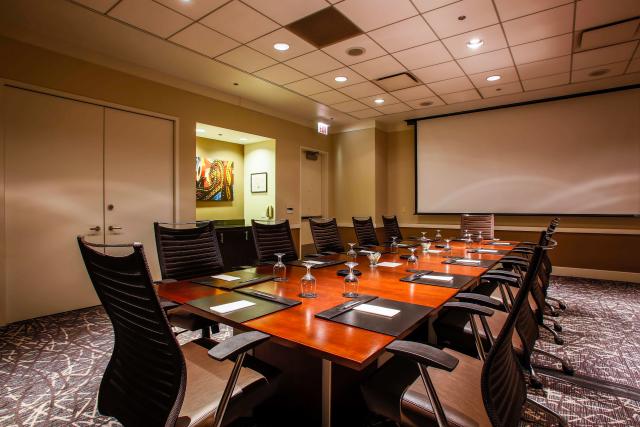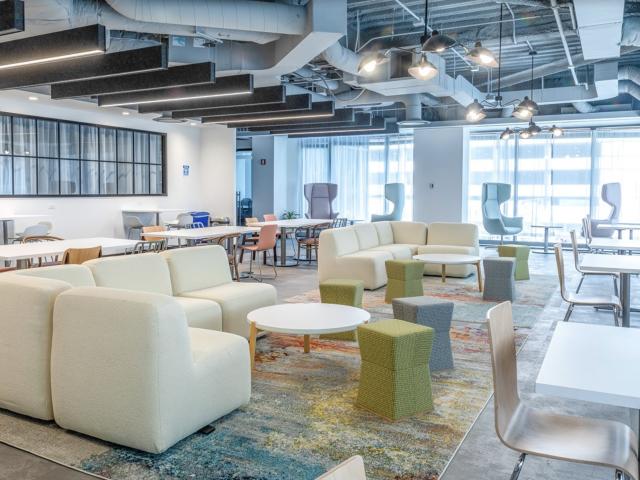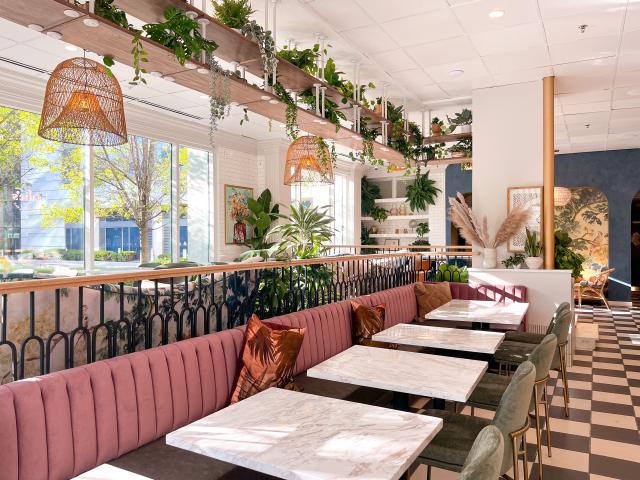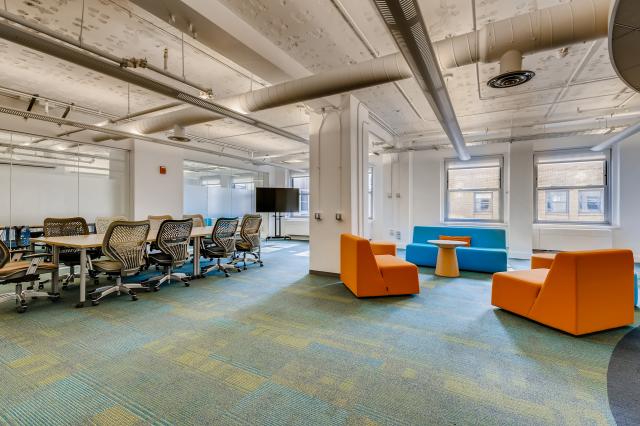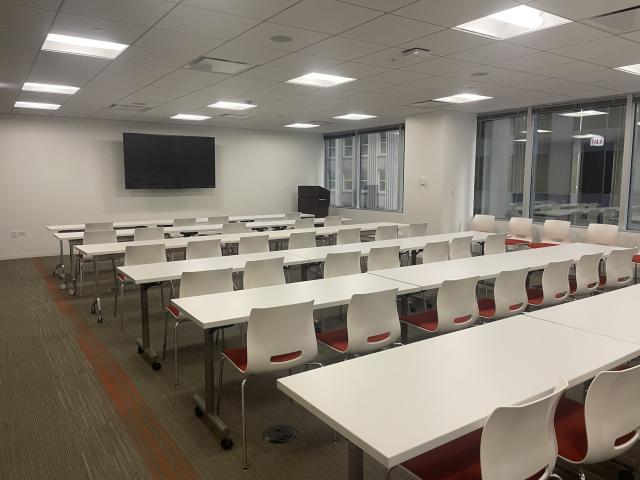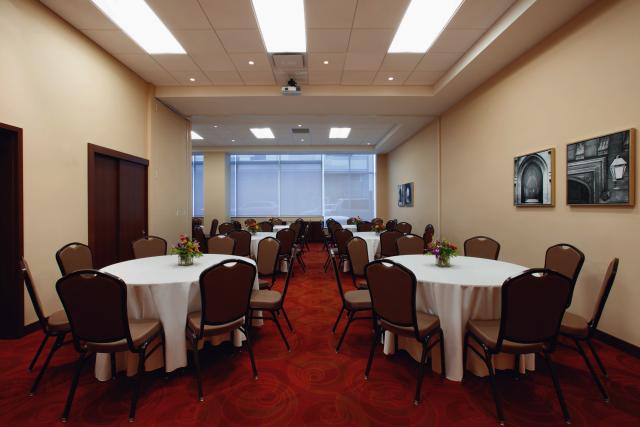Top Meeting Spaces in Chicago, IL
Do you want to organize a meeting and are searching for an inspiring space? Chicago’s meeting spaces provide a perfect backdrop to any meeting, be it a board meeting, a brainstorming session or all kinds of team building activities. To find the perfect space for your upcoming meeting, all you need to do is decide on your preferred venue, put the details into our search engine, get to scrolling, and we assure you that there’ll be plenty to choose from.
-
Conference Rooms A+B
60 guestsTeamWorking by TechNexusTheatre District, Chicago, IL#Supervenue
KKimberly B.
“We had a great meeting at this venue.”from $173
hire fee / per hour -
Conference / Meeting Room 1
10 guestsHub116River North, Chicago, ILGGeoff O.
“Good venue for what we needed. Great value for money.”from $45
hire fee / per hour -
Erie Conference Room
28 guestsWorkbox - River NorthRiver North, Chicago, ILAAmanda K.
“We definitely will keep Workbox in mind for our next off-site meeting!”from $150
hire fee / per hour -
Magnificent Mile
12 guestsNimbler Spaces - ChicagoRiver North, Chicago, IL#Supervenue
SSteve C.
“Fantastic location and facilities. Great team and made to feel very welcome.”from $50
hire fee / per hour -
The Studio
150 guestsIDEA Studio Event SpaceChicago Loop, ILLLindsey M.
“The IDEA Studio was an absolutely perfect venue!”from $460
hire fee / per hour -
Lake Michigan
6 guestsNimbler Spaces - ChicagoRiver North, Chicago, IL#Supervenue
It is equipped with a projector, wireless internet, and all the other amenities that you need to make your meeting successful.from $35
hire fee / per hour -
Ohio River
60 guestsEmbassy Suites Chicago DowntownStreeterville, Chicago, ILThe Mississippi River room is 640sq.ft, the Rock River room is 826 sq.ft and the Ohio River room is 918 sq. ft. Access to the meeting level of the hotel is via elevator from the ground floor of the hotel.from $400
hire fee / per session -
Conference Room 1
4 guestsMy Corner OfficeRavenswood, Chicago, IL#Supervenue
HHerazai
“I loved the beautiful meeting space and very accessible access.”from $25
hire fee / per hour -
Conference Room
12 guestsArt/Work CoworkingWest Town, Chicago, ILOur beautiful Conference Room seating 8-12 people is fully equipped with everything you need for a successful meeting! This space includes two white boards, large TV monitor, conferencing camera, speakers, and Mac mini.from $50
hire fee / per hour -
Truss Meeting Room
100 guestsGodfrey Hotel ChicagoRiver North, Chicago, ILThe Truss Meeting Room at The Godfrey Hotel Chicago offers a flexible and modern setting, accommodating between 10 to 85 guests. This space is ideal for corporate meetings, small conferences, or intimate social gatherings.from $65
per person / per session -
VIP Room
15 guestsGodfrey Hotel ChicagoRiver North, Chicago, ILThe VIP Room at The Godfrey Hotel Chicago is an intimate space ideal for smaller executive board meetings and focused breakout sessions. With a capacity of up to 12 guests, this room provides a quiet, professional atmospherefrom $500
hire fee / per day -
Meeting Room
12 guestsThe Time GalleryWicker Park, Chicago, ILThe Freight Room in Wicker Park is a versatile industrial space perfect for meetings, rehearsals, or casual celebrations. Located near the neighborhood's best dining, bars, cafes, and the Damen and Division Blue Line trains,from $95
hire fee / per hour
- 1
- 2
- 3
- ...
- 7
Capacity
Budget
Area type
Venue type
Catering and drinks
Accessibility features

FAQs about Top Meeting Spaces in Chicago, IL
Try your luck around River North and West Loop and check out various meeting spaces of all shapes and sizes. There are also plenty of great rooms for all kinds of sessions dotted around Fulton Market and Magnificent Mile. New Eastside is home to many gems, suitable for brainstorming sessions, business meetings and all kinds of team building activities.
Based on Tagvenue’s data, most people start looking for a meeting space at least 2 weeks in advance. It gives you just enough time to compare offers, contact managers and find the perfect place that’ll cater for all your needs.
Most of Chicago’s meeting rooms charge hourly rental rates. Prices vary from $25 to $200 per hour. But it’s also possible to rent a room for a whole day - prices range from $400 to $600 per day. Sometimes you can find venues offering special packages where rates start at $250 and can get up to $3500 per session. (Based on data from Tagvenue.)
Obviously, you’ll find basics such as tables and chairs to comfortably accommodate all of the participants but whether there’ll be any additional equipment available depends on the offer. Most meeting spaces have projectors, PA systems, video call facilities, whiteboards, TVs and WiFi connection. To be extra sure about what is included in the offer, we recommend asking the venue manager about all of the details.
Start your search for budget-friendly breakout rooms in Houston by exploring coworking spaces. These professional venues provide breakout rooms that can be rented by the hour or day at reasonable rates, offering flexibility for small group meetings or workshops. If you want to explore your options among the city’s coworking spaces, we recommend starting your search with the following venues:
- Explore the four breakout rooms at Hub116 on West Hubbard Street, which can be hired for $40 to $45 per hour.
- Nimbler Spaces - Chicago on Wabash Avenue has six breakout rooms available for hire from $20 to $55 per hour.
- If you are looking on West Superior Street, One Three Workspace has three rooms from $60 to $200 per hour.
When choosing your venue, decide on the essential elements for your event's success and use our smart filters to narrow down venues with the right offerings at the right price. Whether you need modern AV equipment or flexible catering options, there are plenty of options to consider.
Your Guide to Renting Meeting Spaces in Chicago, IL
As one of the most important hubs for global business, Chicago is the perfect place to do some networking, make new connections and come up with fantastic ideas that’ll bring lots of revenue. This is why it comes as no surprise there is a huge demand for meeting spaces! But don’t you worry, the Windy City is filled with many fantastic spaces where you’ll be able to hold any kind of meeting.
Are you looking for a space in the middle of The Loop, somewhere around River North or Logan Square? No matter which corner of the city you’re interested in, you’ll find fantastic venues with inspiring and well-equipped meeting rooms wherever you look. Are you looking for a place to seal your next deal? A meeting room where your team could brainstorm and exchange new ideas. Or perhaps you need a space for a team building session? You’ll surely find the perfect space among Chicago’s selection! So browse our listings, compare the city’s meeting rooms and pick the one that ticks all of your boxes. And in case you need more information, have a look at our tips below!
What kinds of meeting spaces can I find in Chicago?
Your choice of the perfect space for your meeting will largely depend on the type of meeting you’re hosting and your preferences. In case you’re planning to host a board meeting, you’ll be looking for a sleek meeting space that’ll hopefully showcase your professionalism and have all of the necessary facilities. But if you’re looking for somewhere to have a brainstorming session with your team or engage in team building activities, you’ll be focusing mainly on more casual spaces. Whatever purpose you have in mind, Chicago boasts a plethora of options you can choose from, including:
- Board rooms. Boardroom meetings are often an inevitable part of the working day. Luckily, the city offers plenty of spaces where the directors of an organization or senior associates can comfortably meet. Board rooms, just like conference rooms, vary in size, but many can comfortably accommodate 8 - 10 people. Usually, they also have AV equipment, whiteboards and WiFi connection to ensure nothing is missing for a successful business meeting.
- Conference rooms. It may happen that you’ll need a bigger space for an upcoming conference you’re throwing. So if you’re looking for a professional setting with modern facilities and great-quality equipment, have a look at Chicago’s conference rooms and centers. The best corporate venues can be found in the Magnificent Mile or around the Chicago Loop.
- Co-working spaces. If you’re looking for cheaper alternatives, you can’t miss out on co-working spaces. They offer less privacy than board rooms or private function rooms, as you may guess from the name. In a co-working space you’ll probably be sharing the room with other professionals but some of them do offer private or semi-private areas as well. If you care about privacy but the budget is quite tight, contact the manager of the co-working space you’re interested in and ask whether they have some private rooms you could book.
- Private function rooms. These can be found in all kinds of venues, including hotels and restaurants. Private function rooms can serve multiple purposes, such as a business meeting over lunch or a dinner with a new investor. It doesn’t matter what you’ll be meeting for, booking a private function room could be a great option.
- Hotels. You can also find elegant meeting spaces and boardrooms in hotels! And you don’t have to worry about the lack of great hotels in Chicago! Plenty of chic places are located around the Magnificent Mile and River North.
- Cafes. If your upcoming meeting is more on the casual side, how about hosting it in a cafe? Perhaps you and your team are working on a new project and just need a change of scenery to spark up your creativity? Or you’re simply looking for a charming space to have a work brunch? You’ll be able to find fantastic brunch spots around River North and Logan Square.
You already know what kinds of spaces you can expect from Chicago for your next meeting, so it’s time that you start the whole planning process! Here are a few things to keep in mind that’ll ensure a successful session!
What to consider when planning a meeting?
- The purpose of the meeting. Be clear about this from the moment you send out the invites. Let all of the participants know why you’re holding the meeting and what its desired outcome is. Are you trying to solve a particular problem, make an important decision or simply brainstorming new ideas? There is also the possibility that you’re holding a meeting to gather everyone together and make them play team-building games to improve the relationships within the company. The purpose of the meeting is important not just before it takes place but also throughout the whole event. We recommend you keep the purpose in mind throughout the whole meeting and make sure you’re progressing in the right direction.
- The agenda. Trust us, nobody likes a chaotic meeting. This is why an agenda is so important! Having one shows respect for everyone’s time and allows the person running the meeting to progress towards its goal. So prior to the session, think carefully about the main purpose of the meeting, what points you’d like to cover and once you’ve decided, share them with the rest of the attendees. By letting them know what they can expect, you’re giving everyone the chance to prepare beforehand and bring some ready ideas to the table. During the meeting, do your best to stick to the plan and at the end of the session, thank everyone for their participation and cooperation.
- The kind of meeting. You may go old-school and run an in-person meeting. But it’s common that people employed by one company work from many corners of the world and will simply have to call in for the meeting. That’s when hybrid meetings come into action. If you’re also hosting a meeting with some of the participants joining virtually, make sure you've got all the necessary equipment to run things smoothly. To master the meeting, ask everyone present in the room to turn on their individual cameras. This way people won’t seem squished on the screen or, what’s worse, remote participants won’t be able to see them clearly. We also recommend you take care of good sound quality so that everyone in the room can contribute easily and those who are joining the event online can follow the discussion without problems.
- The attendee’s comfort. Make sure that prior to booking the space that you know how many people will be joining the meeting! After all, the last thing you want for the employees is to be uncomfortable during the meeting and, in turn, unproductive. That’s why it’s important you find a meeting space with not only enough room for everyone but also the right facilities. Apart from that, a lot depends on the vibe during the meeting. Make space for other participants to contribute, ask questions, pitch in ideas and freely voice their concerns. Schedule breaks that will enable the attendees to quickly recharge. To create a safe-space feeling, consider starting the meeting with short warm-up activities.
- Necessary equipment. Before you start the planning process and make any decisions regarding the space your meeting will be taking place in, make sure that you know what kind of equipment will be necessary. You may need things such as whiteboards, flip boards, projectors, computers or tablets, microphones, and any other AV equipment. Also, don’t forget about reliable WiFi! To be extra sure nothing will disturb the meeting, check whether the connection works properly prior to the event.
- The planet. Over the last couple of years, people have become more aware of the damage that’s being done to the environment and how much humans contribute to that every single day. The eco-friendly approach doesn't have to be limited to your personal life only. Take a step further and try to organize a sustainable meeting! We suggest you digitize as much of the paperwork as you can and whenever that's impossible, use recycled paper. When looking for a space, pay close attention to its location and accessibility by public transport - it could encourage the participants to travel by it for the meeting.
How to organize a meeting on a budget?
We strongly recommend that you draw up concrete plans, no matter what kind of event you’re about to throw. When it comes to meetings, a good action plan will ensure that your session is productive and enjoyable. It may happen that you have a limited budget for your upcoming event. In such a case, you’ll need to plan everything carefully and think through all of the details multiple times. This is why we’ve jotted down a few tips for organizing a meeting on a budget:
- Set the budget. First things first, determine how much money you can afford to spend on the meeting. To help you keep track of all the costs, we recommend putting together a rough budget. You can create a spreadsheet with all of the elements you’ll have to include and start figuring out how to organize an amazing meeting without breaking the bank.
- Be flexible. If you’re trying to save, you shouldn’t have just one date in mind. Instead, pick a few that could work for your and other participants and then check offers that are available on those specific days. Being flexible will give you an insight into the best budget-friendly offers and will help you book the one ideal for your pocket.
- Estimate the number of guests. Knowing the number of participants will allow you to calculate how big of a space you’ll need for your meeting. Having a guest list can prevent you from booking a too-big space for a small crowd and a tiny room for a large group. That way you’re eliminating any unnecessary extra costs! To help you find the perfect-size meeting room, try out our search filters and browse through our curated list of spaces that fit your requirements.
- Equipment. Always check whether the equipment you’ll need is included in the price. It’s extremely important, especially if you’re on a budget - you should be extra careful and ask the venue manager about any details that are not clear to avoid unexpected extra fees for any equipment.
We hope that now you’re ready to choose the ideal Chicago space for your next meeting! For more tips and tricks on how to run a successful session, we recommend you have a look at our blog post and feel even more inspired! So without further ado, find the perfect place and start preparations for the next meeting in the Windy City! In case you still need more information, check out the FAQ section below.
